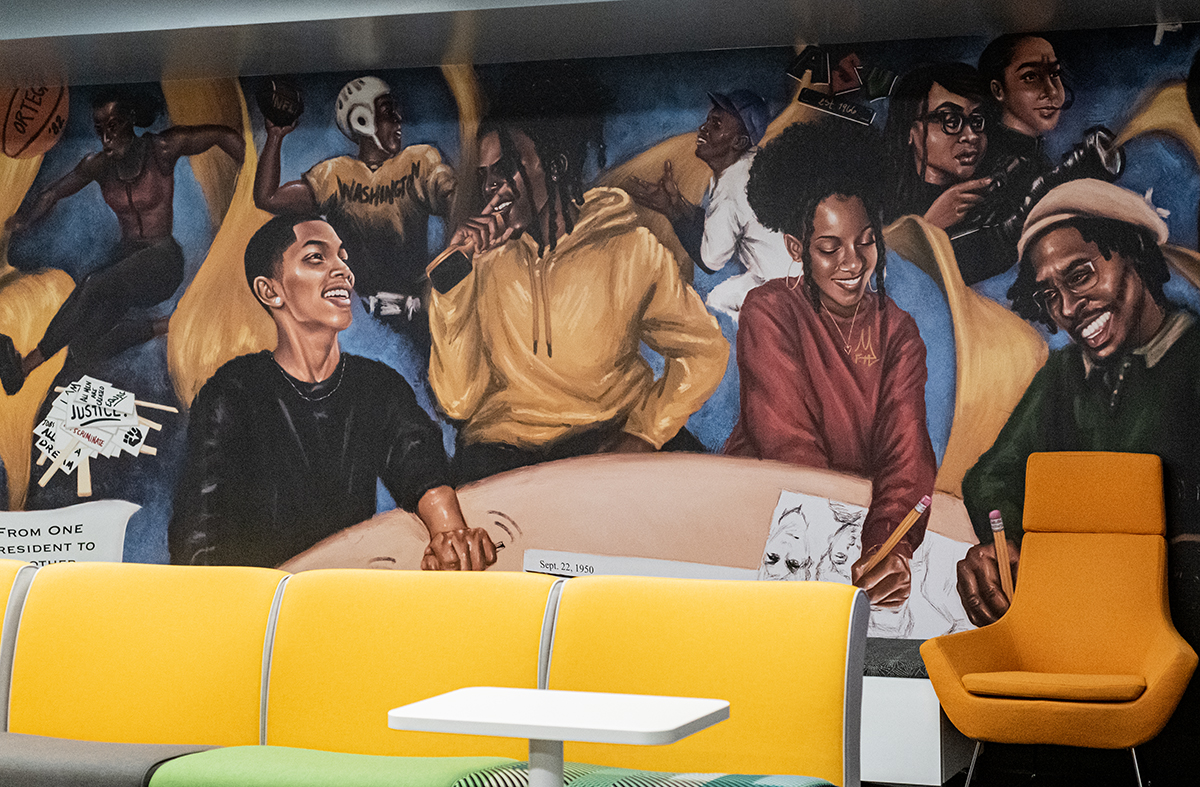The Black Bruin Experience: Black hair positivity celebrates resilience, deconstructs Eurocentric standards
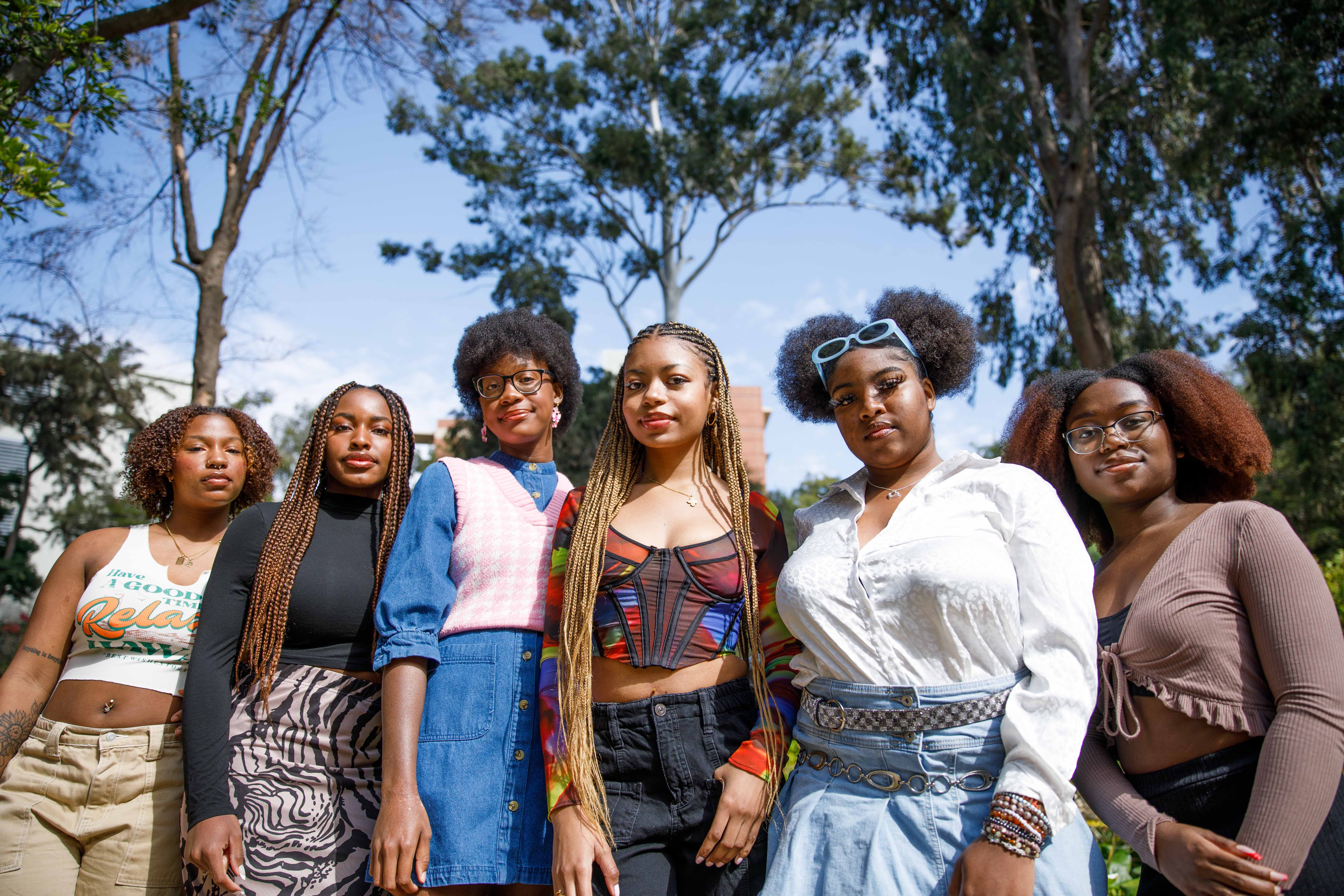
Black hair encompasses a variety of unique styles and textures. Ashanti Starks, Nene Usim, Laila Wheeler, Sydni Brewer, Ebony Jones and Rebecca Usigbe are pictured from left to right. (Grace Wilson/Daily Bruin)
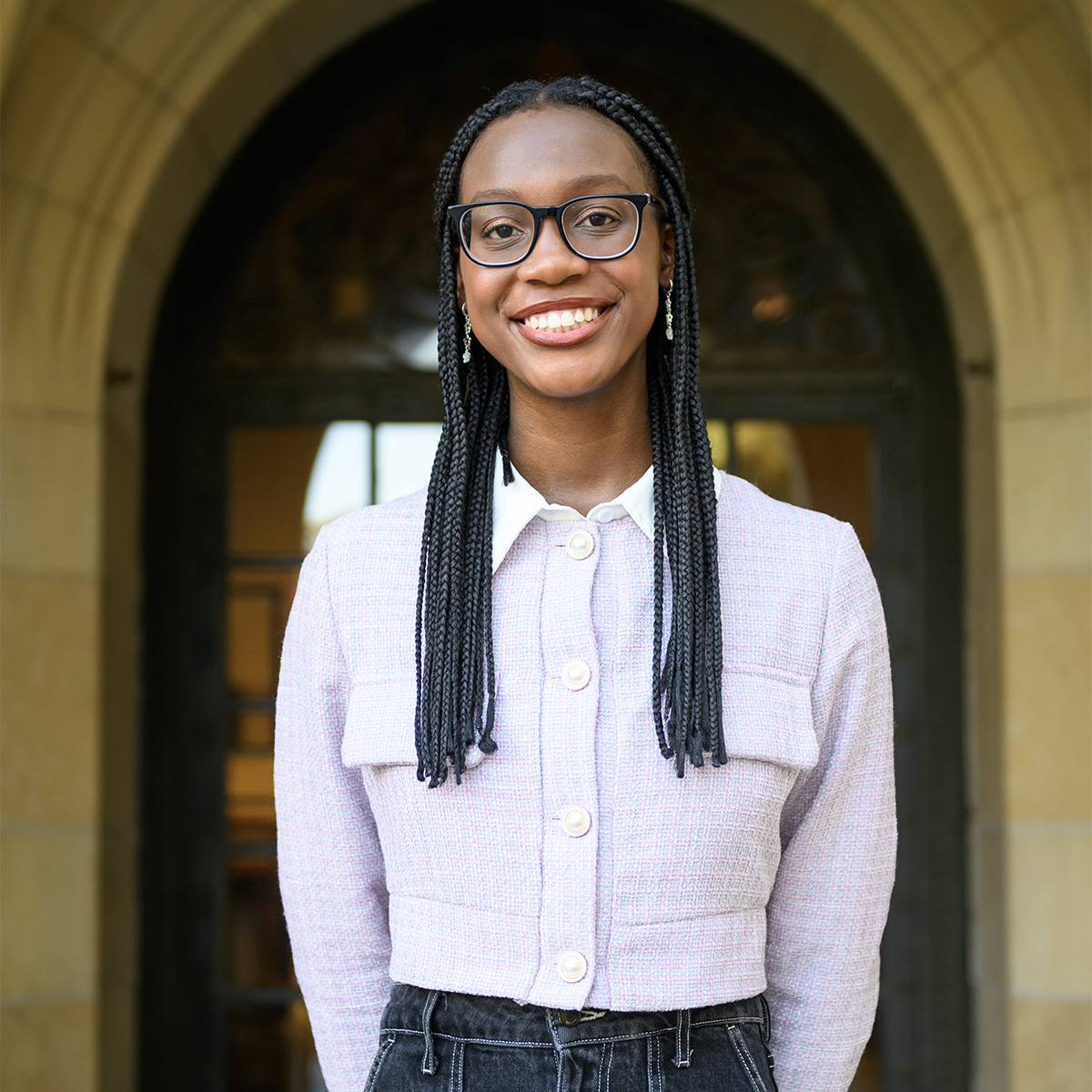
By Laila Wheeler
Feb. 16, 2023 8:42 p.m.
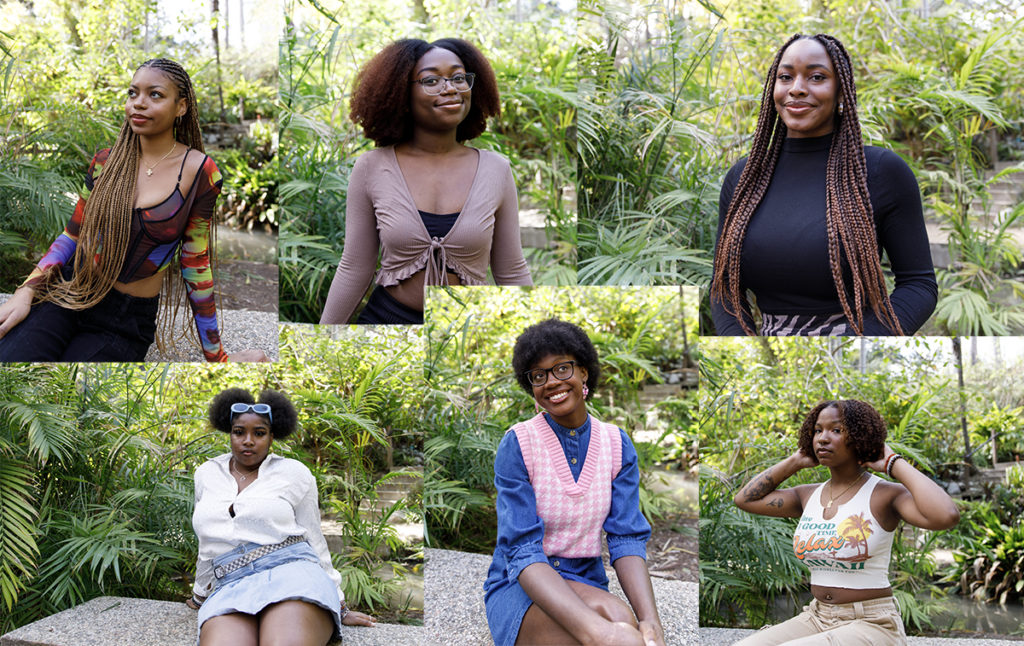
Growing up as a young Black girl, I was constantly taught to hate myself.
I remember gazing into the mirror to meticulously criticize the intricate coils, kinks and textures that made up my uniquely shaped afro – I despised everything about it.
I straightened my hair for years, slowly damaging my natural curls and erasing the multidimensionality of my Black culture that came along with them.
I wanted nothing more than to have the straight, silky hair that was considered “desirable.” The hair that received all the compliments, was consistently featured in mainstream media – and most importantly – the hair that checked off all the boxes of Eurocentric beauty standards.
I wish I could tell my younger self that Black hair is, in fact, beautiful – it always was, and it always will be.
I wish she was taught that her ancestors held a deep sacred connection to their hair as a means of cultivating a sense of tribal identity and inventing new hairstyles we still wear proudly today. Those same ancestors were then captured into slavery, and their hair was completely shaved off as part of the violent attempts to eradicate their culture and identity.
I wish she understood that natural Black hair was a strong cultural symbol of resilience, pride and unity during the Civil Rights Movement. The afro became a powerful statement of rebellion worn by influential figures like Angela Davis, rejecting the notion of assimilating into an oppressive white society.
I wish she knew that Black hair was something to embrace and not erase.
Ultimately, I wish that she, along with other Black girls, realize that they were never alone in their struggles. For many people within the Black community, our hair journeys are far from simple and take a lifetime of unlearning to fully accept.
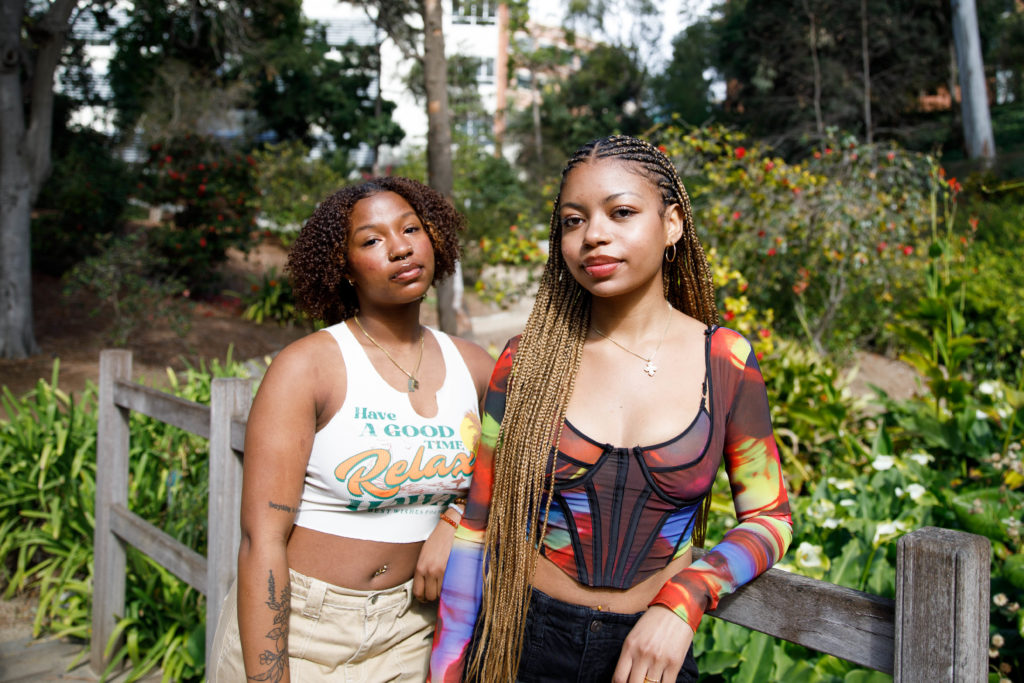
Deborah Gallego, a fourth-year African American studies student, said that her hair journey was tumultuous and involved self-hatred until she eventually embraced her features, including skin color and physical attributes.
“I distinctly remember being a little girl and wishing I was a white girl with straight hair, and no child should ever think that way about themselves,” Gallego said. “Over time, I fell in love with my hair, and not only my hair, but myself. … I love when I see other Black girls go on their journeys too, with learning how to do their hair and just trying out different products, because no one should feel like they don’t belong or they’re not beautiful.”
From our cornrows, afro puffs and twists to dreadlocks, Bantu knots and box braids, Black hair encompasses a wide variety of styles specialized to accentuate our natural textures. The Black community has historically used hair as a form of expression, communicating their individuality and creativity with themselves and the broader society.
However, none of this came without a cost.
Black hair has been perceived as a threat because it unabashedly counters Eurocentric beauty standards, creating a rigid dichotomy between tight coils and a pin-straight silky texture. According to ideologies of texturism, individuals with kinky, Afro-textured hair are seen as less socially desirable and subject to higher rates of discrimination compared to those with smooth, looser hair types.
“Being a dark-skinned Black person, I feel like there’s so many axes of oppression. … I thought a lot of the discrimination I faced was simply due to my race,” said Jovana Tankou, a second-year sociology student. “It was through interacting with other types of Black people – whether they are mixed race or they just have different types of hair textures – when I saw the intricacies of texturism and colorism and how that played into how people treated me.”
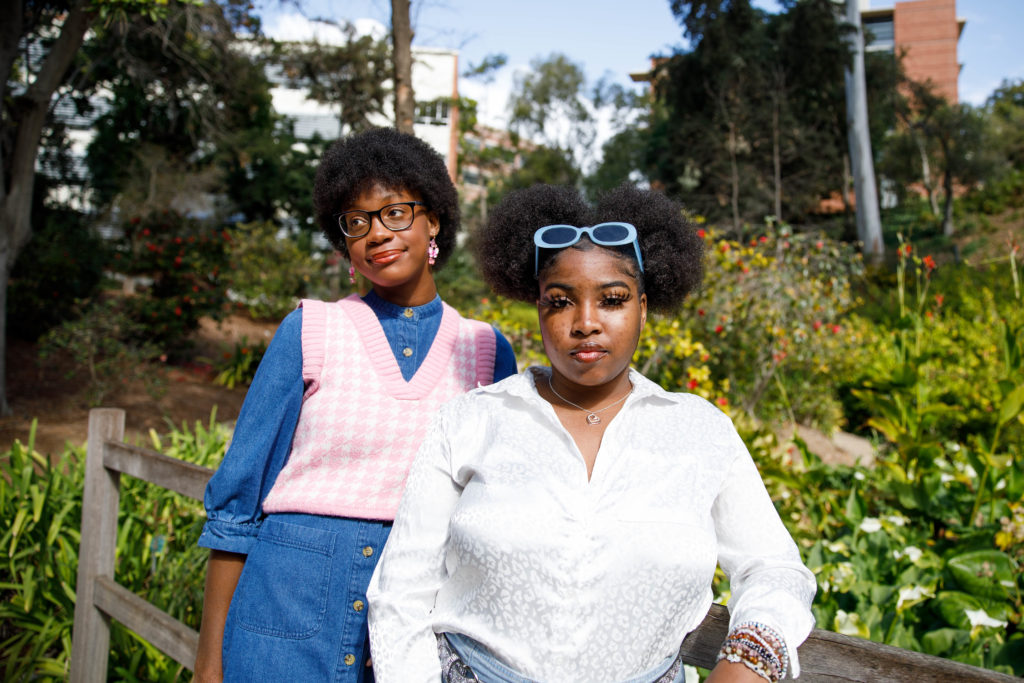
The politicization of Black hair is real. As Black people, our entire existence becomes politicized, from the top of our heads to the soles of our feet – literally.
Respectability politics runs rampant in a world that values Eurocentric features and behavior, causing Black people to take up less space or conform to social norms in an attempt to make their white counterparts feel “comfortable” and gain their acceptance.
Why are dreadlocks and afros deemed unprofessional or unkempt when messy buns are acceptable? Why are protective headwraps and bonnets looked down upon and durags criminalized? It’s about time that we deconstruct this harmful narrative of oppression and Black hair inferiority, which upholds systemic racism in the workplace, education system and interpersonal connections.
Hair discrimination begins at an early age for young Black children. Whether this looks like another student touching a Black girl’s hair without consent or calling it “poofy,” these negative experiences socialize Black children to believe that their hair type is less desirable, which may have detrimental effects on their self-esteem in the future.
Later on, hair discrimination manifests itself in the workplace, often as a determining factor in whether or not a Black person lands an interview or gets hired for a job. As soon as they walk through the door, the hyper-surveillance of Black hair begins, often resulting in Black employees receiving discriminatory comments from managers or being deemed incompetent to work solely based on their hair.
According to the 2019 CROWN Research Study, 80% of Black women said they felt the need to modify their hair from its natural state to fit in at their workplace.
It is essential to acknowledge that while it is commendable for Black women to embrace their natural hair, it is also a form of survival to straighten their hair or install weaves and wigs to assimilate to the Eurocentric standards and avoid discrimination.
No matter how a Black person chooses to wear their hair, they should be appreciated, valued and respected.
“Black hair positivity means the freedom to take care of your hair the way you have the ability to without judgment from anyone,” Tankou said.
Accessibility to natural hair care products may not be feasible for everyone, especially individuals of low socioeconomic status. Black people do not owe an explanation for their hair, nor are they obligated to share their hair journey with anyone.
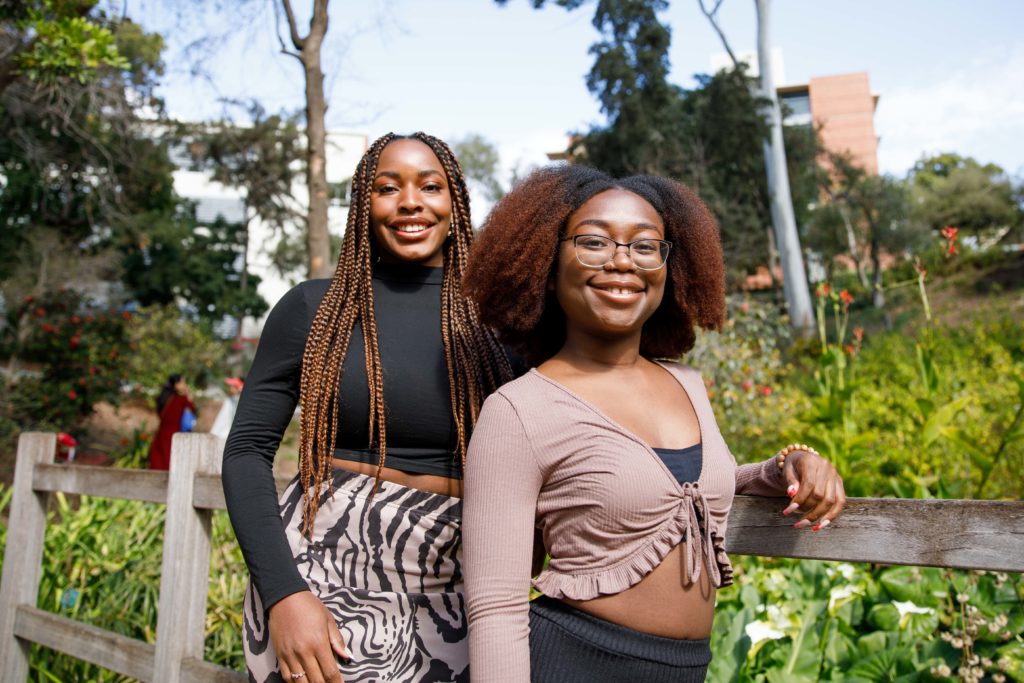
Alexis Webb is a fourth-year biology student and President of Curls U, a UCLA organization that focuses on embracing Black natural hair while addressing other aspects like body positivity, self-love and promoting community service in marginalized spaces.
She said that Curls U provides a safe space to discuss the negative stigmas surrounding natural hair while providing valuable education and teaching students how to properly care for their hair.
“I think Black hair positivity should be promoted more because you could just be the most confident version of yourself,” Webb added.
Black hair is multifaceted and diverse. As young Black girls, we were constantly taught to hate ourselves and everything that made us unique. It’s about time we rewrite this narrative and end the generational trauma that is attached to the long history of our hair, which is all deeply rooted in slavery.
“It’s also been a journey of embracing my ancestors and my heritage just because assimilation is all about taking those things like culture and heritage aspects away from people,” Gallego said. “It’s a form of reclamation for me and a form of self-love – and a form of love for the people that came before me.”
Whether we may be wearing box braids or expressing ourselves through a voluminous afro, our hair tells a relentless story of generational trauma, Black resilience and the power of a community to embrace their natural beauty no matter how many times society tells them not to.
So, the next time someone claims that “it’s just hair,” it was never a matter of “just hair.” It has always been so much more than that.
Black hair is beautiful. It always was and it always will be.
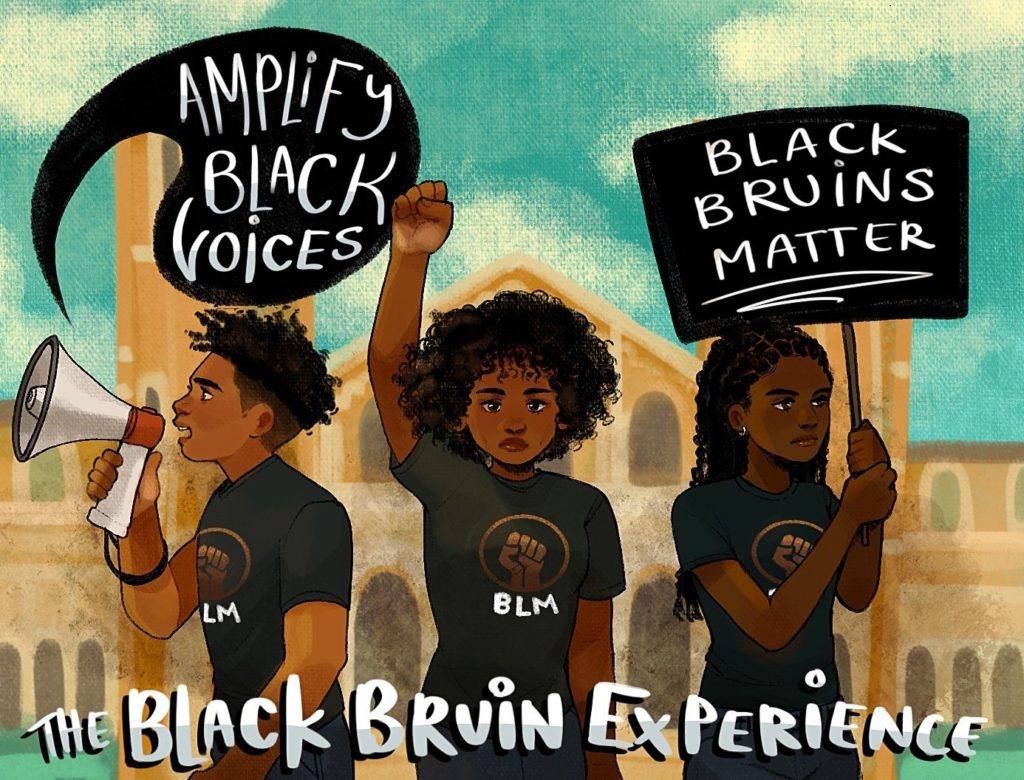
“The Black Bruin Experience” is a series by assistant Opinion editor Laila Wheeler, a second-year public affairs and sociology student. As a Black student at UCLA, she will be exploring a variety of Black issues, from institutional racism to anti-Blackness to the everyday experiences of being Black in the higher education system. These columns will not only focus on Black trauma, but they will also highlight the multidimensionality of Blackness, including Black creativity, Black success, Black leadership and Black excellence. The Black community at UCLA has been tirelessly advocating for its demands to be heard, and these columns aim to amplify Black voices and call on UCLA administrators to actively work toward creating an anti-racist institution. Black Bruins are welcome to submit op-eds or letters to the editor to be published as part of this series to fully represent the diverse experiences and viewpoints of the Black community.



